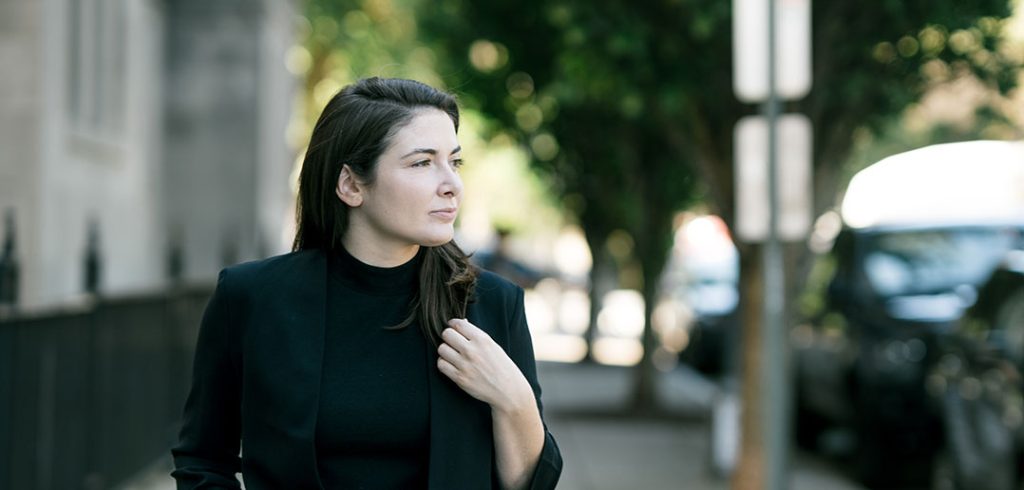A lawyer fights fights for environmental and human rights
Shannon Marcoux discovered her passion for environmental justice in 2016, when she was teaching in Micronesia as a member of the Jesuit Volunteer Corps soon after graduating from Fordham College at Rose Hill.“The school drew students from all over, including countries like the Marshall Islands, which are experiencing some of the worst impacts of climate change,” Marcoux says. “It’s such a pressing global issue that implicates so many different human rights—it’s migration and immigrant rights, it’s the right to food, the right to water. It affects the right to education.”
Marcoux says she “got really angry” when she saw how her students and their families were affected, not only by climate change but also by the legacy of colonialism in the Pacific Islands, and she wanted to channel that anger productively.
“I think for me the legal field is a very practical way to address some of these issues,” she says. “The legal field is a way to get concrete solutions where harm has occurred.”
Building on her Fordham degree in international political economy, she enrolled at Columbia Law School, where she published legal and policy research on both the human rights and environmental impacts of U.S. colonization and military presence in the Micronesian region. She focused on a treaty between the U.S. and the Marshall Islands, for example, and how it has created a “legal vacuum,” foreclosing many ways to address environmental and human rights issues.
“You’ve got [industrial chemicals]leaking into the lagoon, making all the fish that people catch uneatable and things like that, and nobody is responsible,” says Marcoux, who is currently a Bertha Justice Legal Fellow at EarthRights International, a global nonprofit headquartered in Washington, D.C. “I hope to continue writing about those issues to raise awareness and offer some legal analysis.”
Finding Her Vocation
Marcoux says her Fordham education, including participation in the Center for Community Engaged Learning’s Urban Plunge and Global Outreach programs, “made me realize that my vocation, what I wanted to do, was fight for justice.”
“You can talk about that in the classroom in an academic way, but it was through volunteering in the Bronx, it was through Global Outreach—those concrete, hands-on experiences made me realize I want to do this kind of work for the rest of my life,” she says. “This is what I’m passionate about. This is what gets me fired up.”
Read more “20 in Their 20s” profiles.

